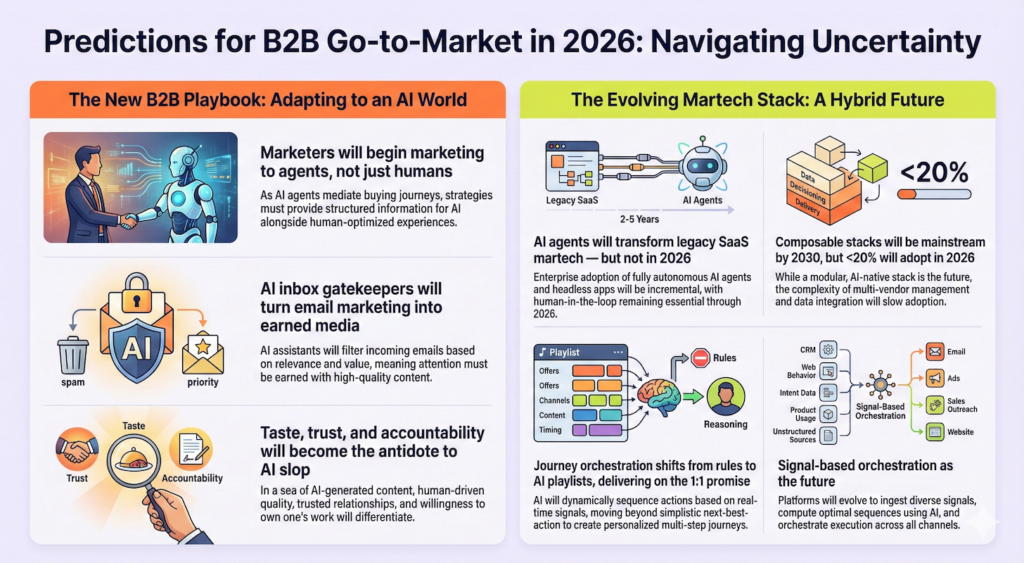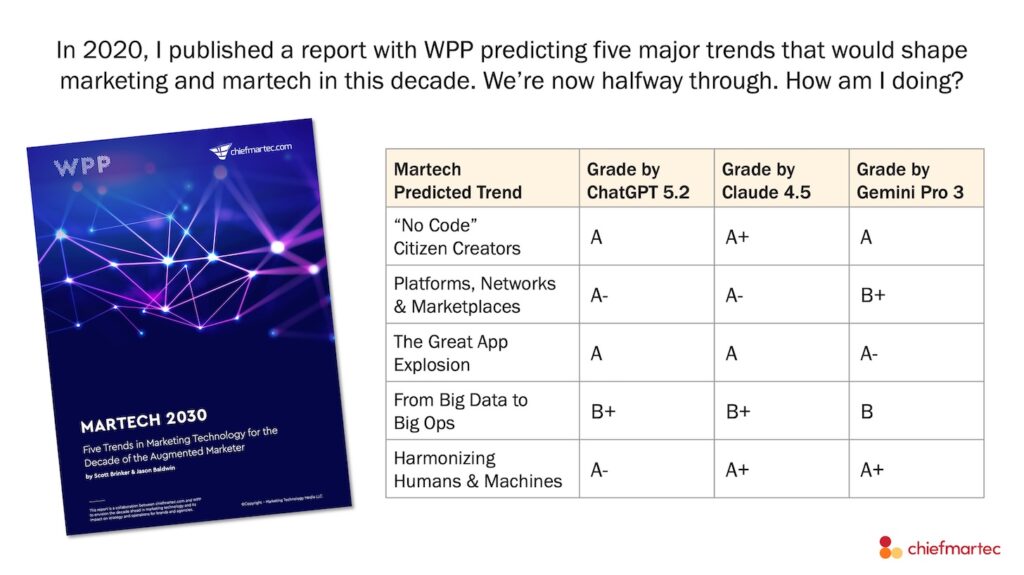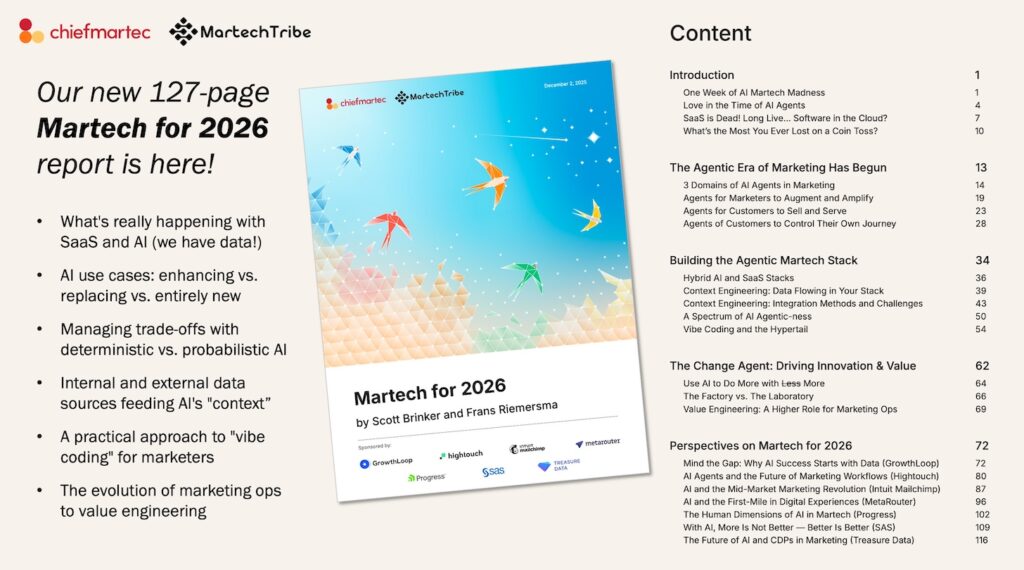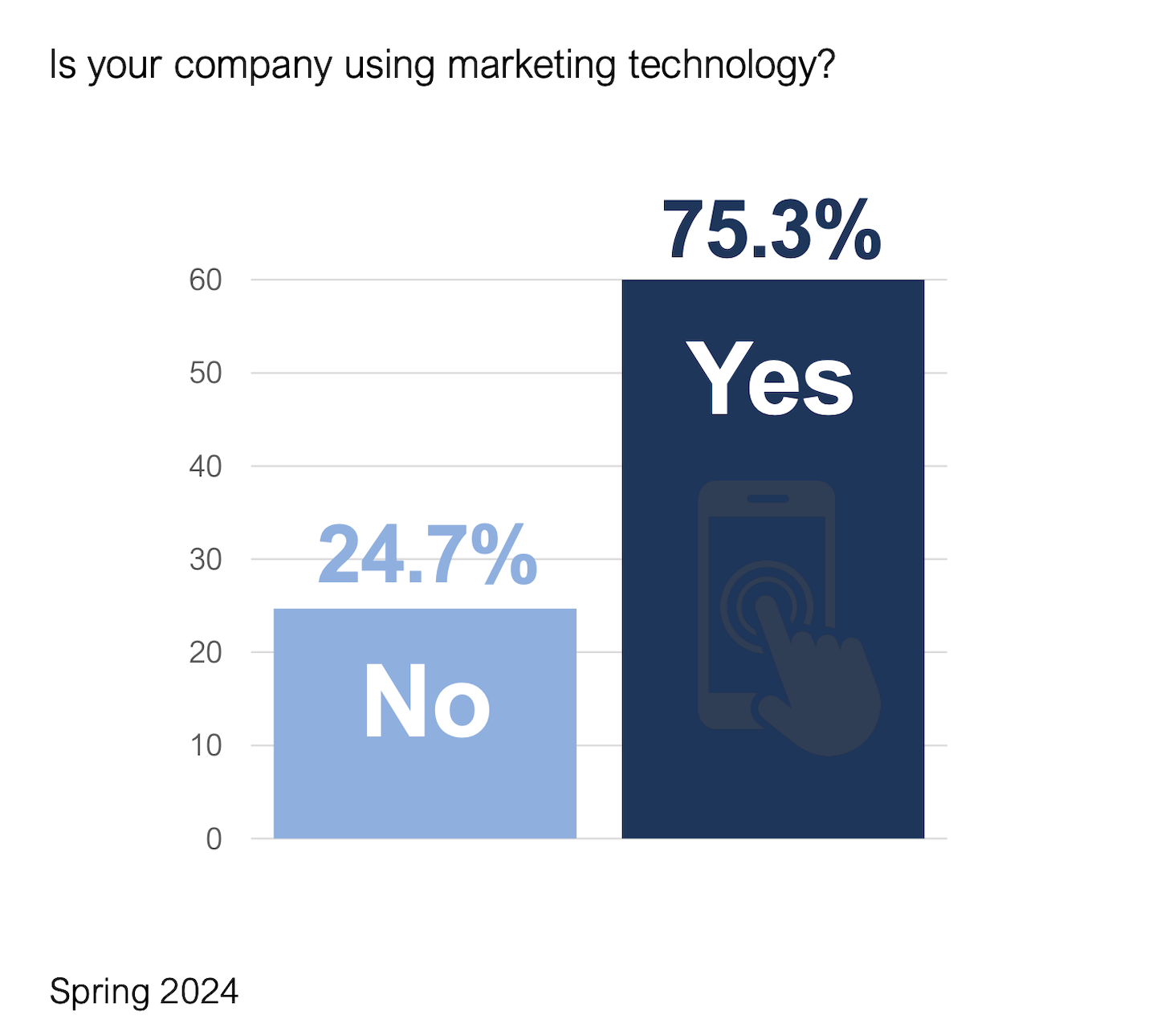
The CMO Survey, a bi-yearly study of trends and perspectives from CMOs run by Duke University, Deloitte, and the AMA, has been one of the keystone research projects in the marketing industry for over a decade. It’s very well run, and I eagerly look forward to reading it every time it’s published.
I was particularly excited to read the Spring 2024 edition just released, because they’d added a detailed section on marketing technology. What were CMOs thinking about martech these days? My inquiring mind was eager to know.
But when I turned the page to the very first result, I fell out of my chair.
In answer to the question Is your company using marketing technology? an incredible 24.7% of CMOs responded, “No.”
1996 just called and asked for their survey back.
So this is obviously false. If you have a website, you use marketing technology. If you have a database of your customers — what the cool kids have been calling CRM for the past 30 years — you use marketing technology. If you create essentially any kind of content on a computer, you use marketing technology.
I mean, maybe one or two respondents are truly disconnected from all digital pathways to their customers. The Carthusian monks, now that they’ve decided to cut back on their Chartreuse production? But 24.7% — 1 out of every 4 businesses?
But while it’s easy for a martech nerd like myself to be snarky about this, the sad truth is that this result represents a significant failure of the martech industry. These CMOs answering “no” — Carthusian monks aside — simply don’t recognize the digital channels and operations they’re most certainly using as marketing technology.
“Martech is marketing,” my friend Chris Elwell declared as the tagline for the MarTech Conference we launched 10 years ago. Which, for the record, wasn’t saying that martech subsumes marketing. But rather that martech is an essential part of marketing’s capabilities in a digital world.
But 1 in 4 CMOs still aren’t buying that. (Even if they are purchasing it.)
They may have an aversion to the term “marketing technology” because of well-earned skepticism around the utilization and ROI of martech. While there are a lot of great martech products out there, there have also been plenty of cases of martech vendors overpromising and underdelivering.
Collectively, martech vendors still have a lot of work to do. It’s not just a product mission. Vendors’ marketing, sales, customer success, and ecosystem partnership teams — my particular passion these days — all have opportunities to help marketers better leverage martech.
But it’s not entirely on vendors’ shoulders.
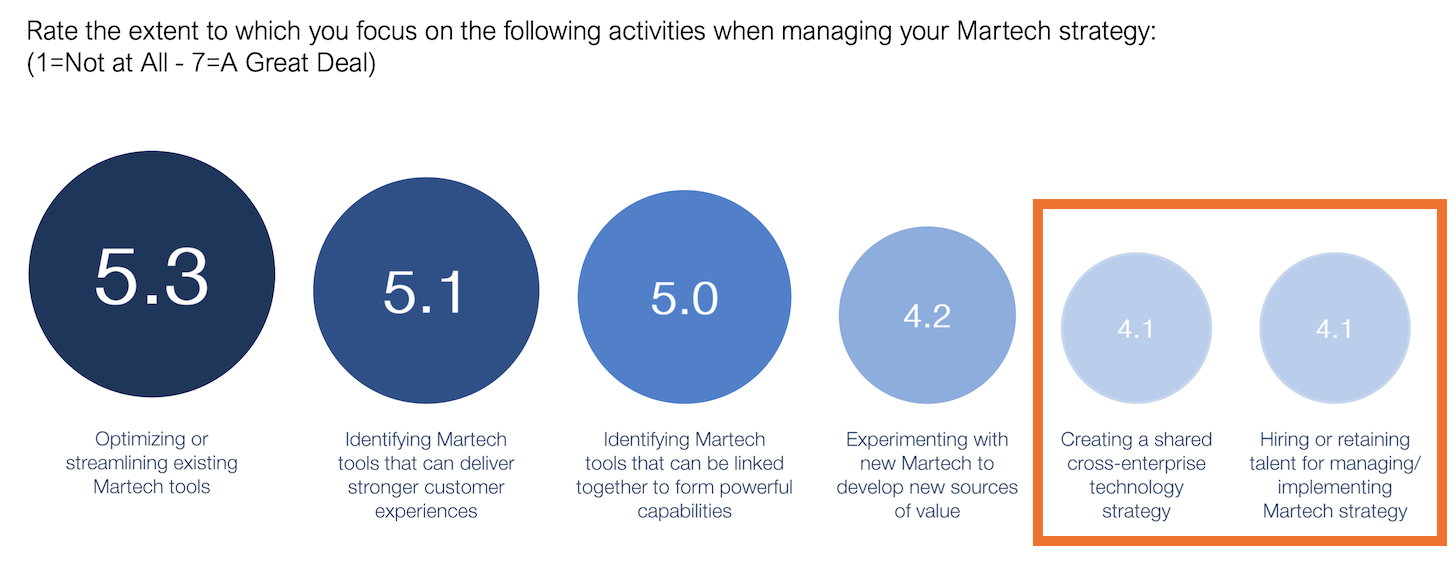
Too many marketing organizations slip into a myopic view of optimizing individual tools and searching for that elusive “next tool” that will magically transform commoditized lead into differentiated gold — while underinvesting in talent development and a broader technology strategy.
This is like building a house by spending most of your time looking for the perfect hammer, while paying scant attention to the blueprints or the carpenters doing the work.
It’s not surprising then that hiring the right talent, integrating martech across the business, and demonstrating ROI from martech’s overall capabilities is where these organizations struggle.
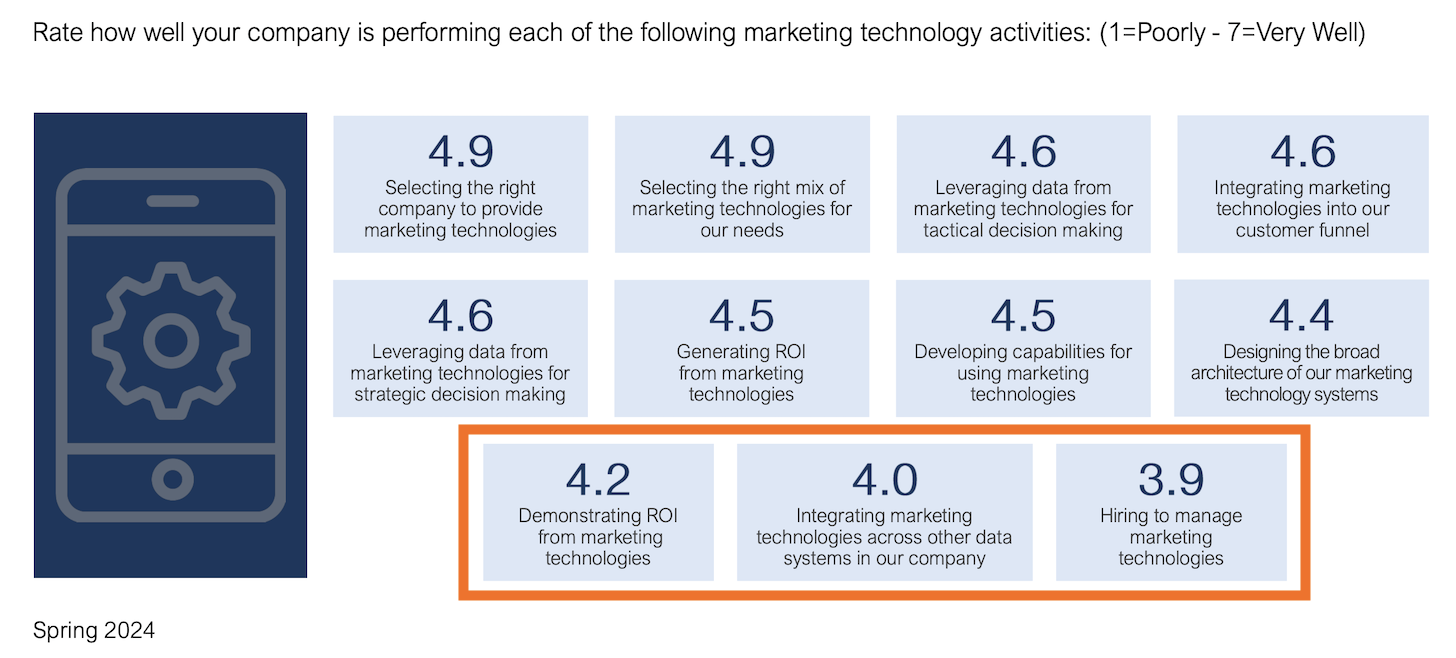
It’s the singer, not the song.
One of the things martech vendors could do to help their customers succeed is to put more emphasis on more holistic dimensions of martech success. Historically, many vendors have considered that a distraction from a focus on selling their own products. But if the key to winning in a riduculously-crowded, hyper-competitive martech landscape is differentiation and trust, taking up this broader perspective is an opportunity to stand out.
It’s certainly an opportunity for marketing services companies to lead the way in advising clients on the path to martech mastery. Technical implementations and fully outsourced admin work may be the easiest way to rack up hourly billings. But in the absence of coaching clients on better strategy, organizational development, and the change management to get there, it’s a shallow relationship. One that AI is increasingly likely to displace before this decade is out.
We don’t talk about “digital transformation” much anymore. Partly because we’re sick of the term. But partly because, hey, every business is inescapably digital to some degree now.
But the opportunity to be transformative — as a martech vendor, as a services company, or as a marketing leader — has never been greater.
P.S. If you haven’t yet signed up for #MartechDay, please do so now. You can watch it live or on-demand and be one of the first to get our new 2024 State of Martech Report.

